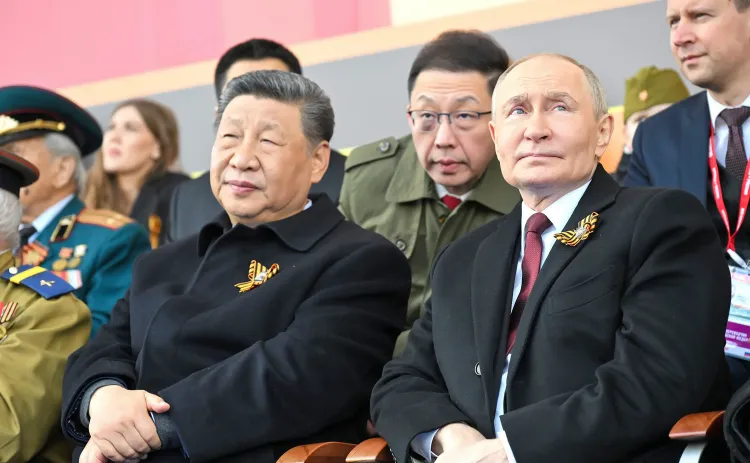Why is China Opposing US Tariffs on Russian Oil Purchases?

Synopsis
Key Takeaways
- China firmly opposes US tariffs on Russian oil purchases.
- The US's unilateral actions could disrupt global trade.
- China is prepared to defend its economic interests.
- Dialogue and cooperation are essential for stability.
- Implications of tariffs extend beyond China and the US.
Beijing, Sep 15 (NationPress) China has expressed robust opposition to a demand from the United States that the Group of Seven (G7) and North Atlantic Treaty Organisation (NATO) nations impose tariffs ranging from 50 to 100 percent on China due to its acquisition of Russian oil, according to a spokesperson from the Ministry of Commerce.
In reply to a media inquiry, the spokesperson stated that China has consistently rejected trade and economic sanctions against it under the guise of so-called 'Russia-related' matters.
The spokesperson characterized the US's efforts to pressure other nations into applying 'secondary tariffs' on China for purchasing Russian oil as a classic example of unilateral intimidation and economic coercion, as reported by the Xinhua news agency.
This action significantly undermines the consensus established during a phone discussion between the two nations' leaders and could seriously disrupt global trade as well as the stability of industrial and supply chains, the spokesperson noted.
China vehemently opposes this initiative and will take all necessary actions to protect its legitimate rights and interests if any party jeopardizes China's well-being, the spokesperson added.
Additionally, the spokesperson expressed a desire for the United States to proceed with caution, collaborate with China, and resolve trade disputes through equitable dialogue and consultation.
The spokesperson also called on relevant parties to uphold core principles and collaborate with China to maintain the international trade framework and the stability of global industrial and supply chains.
Recently, the US urged its G7 allies to adopt stricter measures against Russia, pushing for tariffs on nations that continue purchasing Russian oil.
In a joint statement with G7 finance ministers, US Ambassador Jamieson Greer and Treasury Secretary Scott Bessent reiterated President Trump’s call for allies to enhance efforts to curb Moscow’s energy income, which Washington claims is fueling the war in Ukraine.
The officials indicated that the US has already implemented punitive tariffs on countries that persist in importing Russian oil, labeling this policy as a vital component of Trump’s strategy to compel Moscow to negotiate. They urged other G7 members, including Canada, France, Germany, Italy, Japan, and the United Kingdom, to follow suit.









